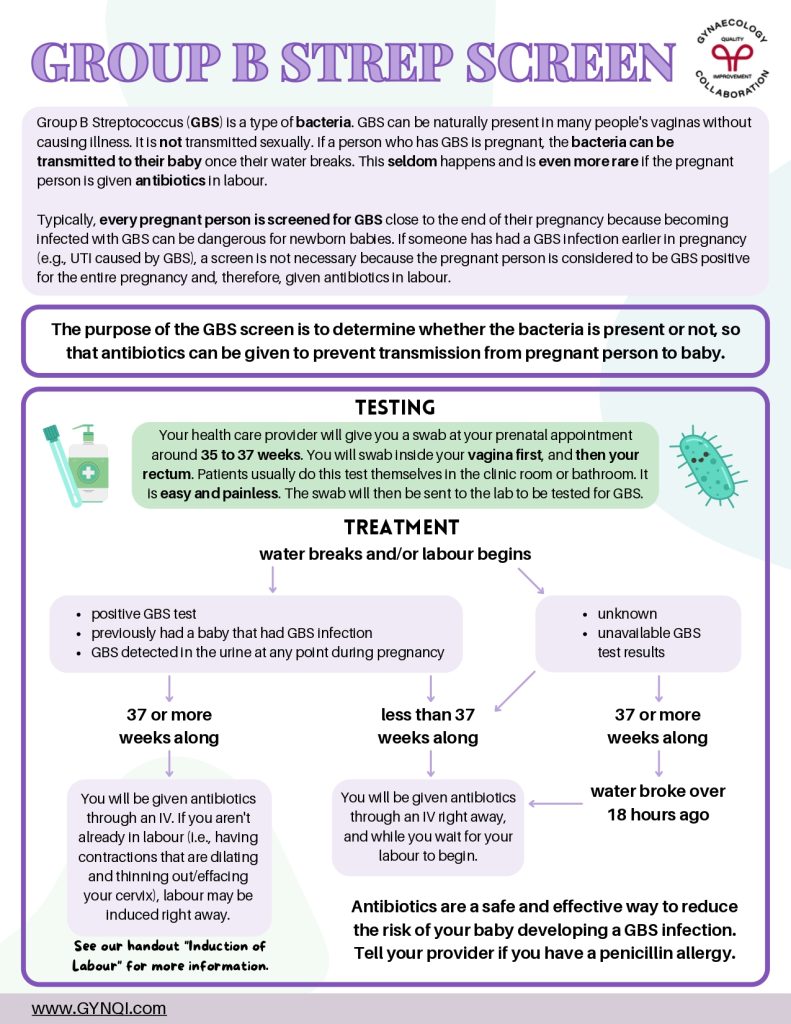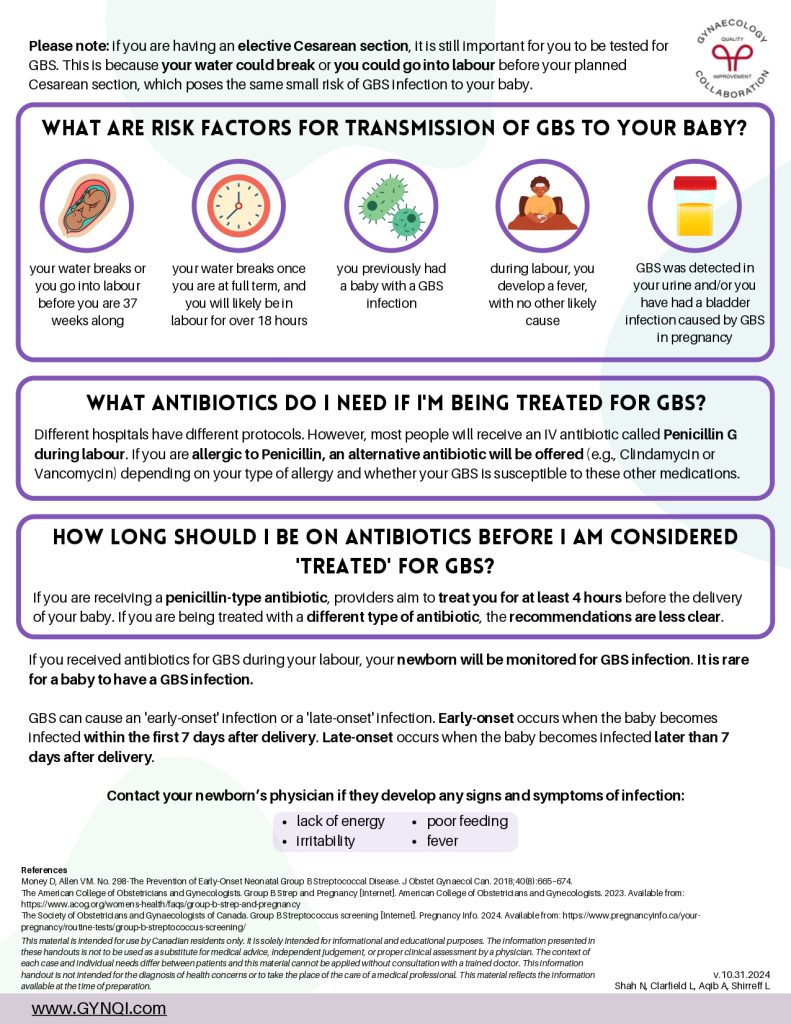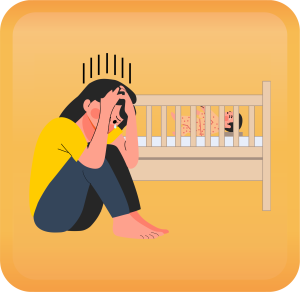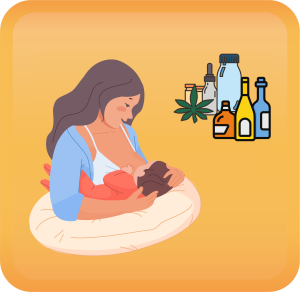

Group B Strep Screen
Group B Streptococcus (GBS) is a type of bacteria. GBS can be naturally present in many people’s vaginas without causing illness. It is not transmitted sexually. If a person who has GBS is pregnant, the bacteria can be transmitted to their baby once their water breaks. This seldom happens and is even more rare if the pregnant person is given antibiotics in labour.
Typically, every pregnant person is screened for GBS close to the end of their pregnancy because becoming infected with GBS can be dangerous for newborn babies. If someone has had a GBS infection earlier in pregnancy (e.g., UTI caused by GBS), a screen is not necessary because the pregnant person is considered to be GBS positive for the entire pregnancy and, therefore, given antibiotics in labour.
The purpose of the GBS screen is to determine whether the bacteria is present or not, so that antibiotics can be given to prevent transmission from pregnant person to baby.
Testing
Your health care provider will give you a swab at your prenatal appointment around 35 to 37 weeks. You will swab inside your vagina first, and then your rectum. Patients usually do this test themselves in the clinic room or bathroom. It is easy and painless. The swab will then be sent to the lab to be tested for GBS.
Treatment
Once your water breaks and/or labour begins, management depends on your GBS swab results.
For those with either a positive GBS test, who previously had a baby that had GBS infection, or GBS was detected in the urine at any point during pregnancy, management is as follows. If you are 37 or more weeks along, you will be given antibiotics through an IV. If you aren’t already in labour (i.e., having contractions that are dilating and thinning out/effacing your cervix), labour may be induced right away. See our handout “Induction of Labour” for more information. If you are less than 37 weeks along, you will be given antibiotics through an IV right away, and while you wait for your labour to begin.
For those whose GBS test results are unknown or unavailable, management is as follows. If you are 37 or more weeks along and your water has been broken for more than 18 hours, you will be given antibiotics through an IV right away, and while you wait for your labour to begin. If you are less than 37 weeks along, you will be given antibiotics through an IV right away, and while you wait for your labour to begin.
Antibiotics are a safe and effective way to reduce the risk of your baby developing a GBS infection. Tell your provider if you have a penicillin allergy.
Please note: if you are having an elective Cesarean section, it is still important for you to be tested for GBS. This is because your water could break or you could go into labour before your planned Cesarean section, which poses the same small risk of GBS infection to your baby.
What Are Risk Factors for Transmission of GBS to Your Baby?
- Your water breaks or you go into labour before you are 37 weeks along
- Your water breaks once you are at full term, and you will likely be in labour for over 18 hours
- You previously had a baby with a GBS infection
- During labour, you develop a fever, with no other likely cause
- GBS was detected in your urine and/or you have had a bladder infection caused by GBS in pregnancy
What Antibiotics Do I Need if I’m Being Treated for GBS?
Different hospitals have different protocols. However, most people will receive an IV antibiotic called Penicillin G during labour. If you are allergic to Penicillin, an alternative antibiotic will be offered (e.g., Clindamycin or Vancomycin) depending on your type of allergy and whether your GBS is susceptible to these other medications.
How Long Should I Be ON ANtibiotics Before I am Considfred ‘Treated’ For GBS?
If you are receiving a penicillin-type antibiotic, providers aim to treat you for at least 4 hours before the delivery of your baby. If you are being treated with a different type of antibiotic, the recommendations are less clear.
If you received antibiotics for GBS during your labour, your newborn will be monitored for GBS infection. It is rare for a baby to have a GBS infection.
GBS can cause an ‘early-onset’ infection or a ‘late-onset’ infection. Early-onset occurs when the baby becomes infected within the first 7 days after delivery. Late-onset occurs when the baby becomes infected later than 7 days after delivery.
Contact your newborn’s physician if they develop any signs and symptoms of infection:
- Lack of energy
- Irritability
- Poor Feeding
- Fever



